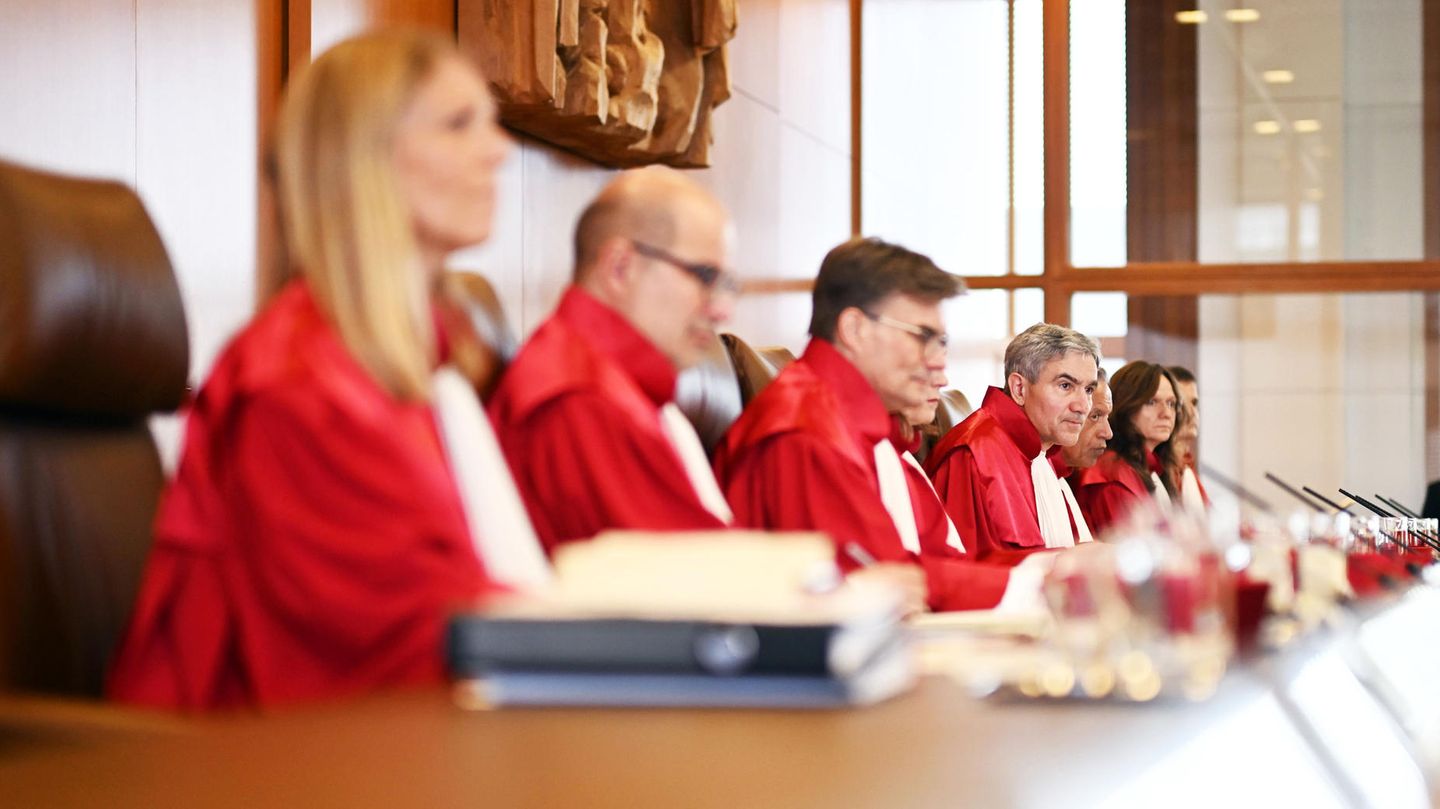interview
Legal expert Maximilian Steinbeis welcomes the plans of the Ampel and CDU/CSU coalition to protect the Federal Constitutional Court from extremists. But he warns: The law has limits.
The traffic light parties and the Union want to better protect the Federal Constitutional Court against extremist forces. Representatives of the parties have now presented joint proposals with Federal Justice Minister Marco Buschmann (FDP). According to these, the election procedure and the number of constitutional judges are to be laid down in the Basic Law, among other things.
Legal expert Maximilian Steinbeis welcomes the plans in conversation with the star. At the same time, he warns that the constitution alone cannot protect democracy.
The traffic light factions and the Union want to establish cornerstones of the functioning of the Federal Constitutional Court in the Basic Law. Why do you think this is necessary?
When authoritarian populists come to power, the first thing they do is target the constitutional courts. We have seen this in other countries, such as Poland and Hungary. The Federal Constitutional Court is also vulnerable: a simple majority in the Bundestag is enough to change and manipulate the court’s procedural and organizational principles.

© Constitutional Blog
Maximilian Steinbeis (53) is a lawyer, journalist and writer. Since 2009 he has been running the “Verfassungsblog”, which publishes texts on constitutional and legal policy issues.
If these principles were laid down in the Basic Law, they could only be adopted with a two-thirds majority in the Bundestag and Federal Council Why have they previously only been regulated in a federal law?
Because that was basically right. It’s not about writing everything directly into the Basic Law. But on a few points the decision should be removed from the reach of a simple majority in the Bundestag. Particularly with regard to the composition of the court.
The traffic light coalition and the Union now want to anchor the procedure for electing judges in the Basic Law. Is that a good thing?
Yes. In some federal states, this has rightly been the case for a long time. However, this is not enough at the federal level. The two-thirds majority required to elect a constitutional judge in parliament poses a dilemma: it allows for blocking minorities. If an authoritarian-populist faction has more than a third of the seats, it can block the election. In Thuringia and Saxony, this could already be the case with the AfD after the state elections in September. That is why a solution is needed for such a situation too.
That is why those involved want to stipulate in the Basic Law that in the event of a blockade in the Bundesrat, the right to vote will be transferred to the Bundesrat – and vice versa. A smart idea?
Absolutely. It works at the federal level because you have two bodies for electing judges, the Bundestag and the Bundesrat. So if one is blocked, you can switch to the other. A blockade is much less likely in the Bundesrat. A lot would have to come together.
As long as judges are politically elected, this always provides a gateway for authoritarian forces such as the AfD.
Judges must be politically elected; there is no alternative. Anyone who can sit in court over others and declare laws unconstitutional must be democratically legitimized. The question is: How can we prevent the abuse of institutions? It is therefore good that the government factions and the Union also want to anchor the number of senates and judges in the Basic Law, so that this is more difficult to change politically.
There is no reason to trust the AfD.
Currently, the CDU/CSU, SPD, Greens and FDP take turns proposing judges, but only on the basis of political agreements. Can the AfD be excluded from this in the long term?
As long as the AfD pursues authoritarian goals, democracy has the greatest interest in not letting this function fall into its hands.
In the past, judicial elections have taken place without major controversies. Given the rise of the AfD, do we have to prepare for more intense political battles?
The parties are already trying to place constitutional judges on the court who are ideologically close to them. This can never be completely avoided. What is crucial is that the parties involved in the appointment share a common interest in not damaging the court. That they allow it to remain an impartial and independent court and not subject it to any particular political goal. There is no reason to trust an authoritarian-populist party like the AfD.
Can a democracy be protected by law?
You can never rely on that. Nor on the constitution protecting democracy. It is more the other way around: democracy must protect the constitution. Every constitution is based on a layer of unwritten conventions that everyone abides by. As long as the forces of political competition do not damage this layer, democracy is stable. If they do, democracy is in danger.
Source: Stern
I have been working in the news industry for over 6 years, first as a reporter and now as an editor. I have covered politics extensively, and my work has appeared in major newspapers and online news outlets around the world. In addition to my writing, I also contribute regularly to 24 Hours World.




